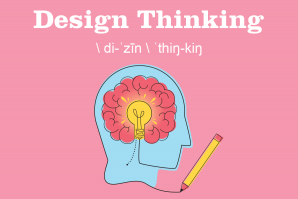As a recovering workaholic and the owner of a growing communications firm, I never thought to embrace the word “play.” It simply didn’t adhere to my ambitious, goal-oriented mind. Sure, I would take a walk around the block every once in a while to clear my head, I enjoyed golf on the weekends and dance classes on weeknights, but incorporating play into my work? It hardly felt productive. In fact, it felt completely counterintuitive.
Play requires improvisation, risk and ambiguity — elements of business we sometimes shy away from. Why improvise when a sure and steady structure is already set in place? Why engage in risk and ambiguity when I already know what business strategies work, at least generally? I had thorough processes set in place, catering to every facet of my business — from pitching to project management, and print advertising to digital — yet the more structure and certainty consumed my work, the more I ended up feeling stuck and creatively blocked.
So I gave my team more room to brainstorm and be silly. I took more business risks that gave me energy and vitality. I started to sanction — and occasionally join — Nerf gunfights during work hours. And I found that play does, in fact, work.
Not only does play restore energy and increase motivation, it also enables us to work through problems creatively and collaboratively. Primatologist Isabel Behncke Izquierdo conducted a study in which she compared the social behaviors of bonobos in the wild with the social behaviors of humans at Burning Man. She found that play in both humans and primates increases resilience and leads to greater cooperation and creative problem solving. While a forest in the Congo and the desert in Nevada are quite different environments than the office, there’s a point to be made about the power of play in the workplace. (And resilience, cooperation and creative problem solving are among the most important factors in running a business.)
Increased play is also good for the body and the brain. Research has shown that stress and burnout inflates health care costs and leads to absenteeism in the workplace. In fact, the U.S. Centers for Disease Control and Prevention reported in 2016 that stress is the leading workplace health problem, ahead of physical inactivity and obesity. I think it’s safe to say that the more fun your employees have, the less stressed they will be and the less compromising their work will feel. Another researcher, Jane McGonigal, director of games research and development at the Institute for the Future in Palo Alto, found that playing collaborative games like Words with Friends or FarmVille not only strengthens relationships, but also aids in fighting anxiety and depression.
Play is all about the process, and sometimes the process is more important than the end result. It sounds strange to value process over outcome, but if we’re always focused on the end goal, where’s the fun in getting there? In the business world, we win some, and we lose some — it’s the nature of the game. Learning how to have fun within the process can result in a better outcome and keep managers and employees sane and engaged.
According to Stuart Brown, author of the book “Play” and founder of the National Institute for Play, the act of play, regardless of outcome, connects colleagues and builds community. He emphasizes that play is integral to learning through both winning and losing. So although the end goal will always be integral to our business plans, taking risks in the process just might be a means of getting there.
It’s easy to forget about the importance of play as we age, so reminding my team that play is integral to the development of a happy and healthy workplace is essential to my job. Through office and off-site gatherings that emphasize activity and friendly competition, I’ve tried to foster that playful spirit between colleagues. Creativity is play as well — the mere importance of giving your team creative freedom to express themselves in business cannot be understated. When I give my team room to explore their creative potential through their writing, design and project management styles, I’m rarely disappointed. Taking a chance on creativity is fun and rewarding for all.
In business, there’s always a place for structure, certitude and end goals. There are rules we must comply with and paths we must take. But when I added more play to my week, whether it was in the office or on the golf course, I noticed my energy restored and my mind renewed. I found myself more productive, and I added more curiosity and creativity to my business practices.
So let’s all commit to team building, imagination and motivation in the workplace. And with our world, our city and our businesses changing rapidly, we must be able to work together to address challenges creatively with a sense of zeal, and, dare I say it, play.
—
Account Executive Dana Walker contributed to this story.
Recommended For You

Success by Design
Design thinking is one of the hottest workplace trends, but not everyone is a fan
Design thinking is embraced by leaders as a way to deal with the complex and competitive 21st-century workplace. But there are critics who say the process can be misunderstood or misused by those who don’t complete the required deep dives to arrive at new and profound solutions.

Buzzwords: Design Thinking
A methodology that provides a solution-based approach to solving problems.
Various iterations of “design thinking” have come into play over the years, but the process as we currently know it consists of five steps: empathize, define, ideate, prototype and test.



